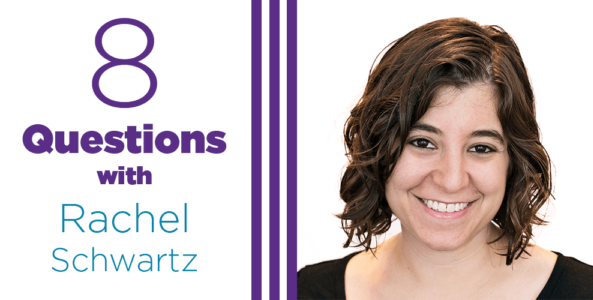2. What experiences have led you into your current career path?
In my last job, I was on the Assessment Team at a nonprofit called Interfaith Youth Core (IFYC), whose mission is to partner with higher education institutions to elevate the civic priority of interfaith cooperation. As I mentioned above, I helped manage a national survey on the religious climate of college campuses. I wrote about our findings on social media, helped write reports about our data, and worked with campuses to implement data-based changes to establish an interfaith prayer and reflection room, for example. Beyond assessment, I also mentored students on campus who were planning interfaith social justice campaigns and trained student leaders at our national conferences.
Building interfaith cooperation has been my personal mission since college. Working at IFYC was my first step toward that, and it is what inspired me to use and build my evaluation skills in support of my own Jewish world. After all, what is interfaith cooperation without strong faith communities?





